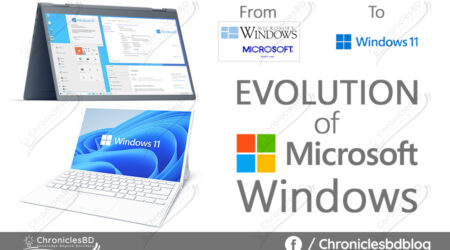Exploring Android: Features, Versions, Devices, Development and Future
Jakaria2023-03-05T04:19:16+06:00Introduction
Android, an open-source smartphone operating system created by Google. It was first released in 2008 and has since become the most popular mobile operating system in the world, powering billions of devices.
Customizability
Customizability is one of the key features of Android. Unlike other operating systems, Android allows users to customize their device's appearance and functionality. Users can install third-party applications, customize their home screen, and even modify system-level settings. This level of customization has made Android a favorite among tech-savvy users who want complete control over their devices.
App Ecosystem
Another major advantage of Android is its vast app ecosystem. The Google Play Store has millions of applications available for download, ranging from productivity tools to games and entertainment apps. This huge library of apps makes it easy for users to find and install the apps they need, enhancing the functionality of their devices.
Integration with Google Services
Android also offers excellent integration with other Google services such as Gmail, Google Drive, and Google Maps. This integration makes it easy for users to access their files, emails, and other information across multiple devices.
Security Measures
In addition to its features, Android also has several security measures in place to protect user data. Android uses a permission-based system that requires users to grant permission to apps before they can access sensitive data such as contacts, messages, and location. Android also provides regular security updates to ensure that devices are protected against the latest threats.
Fragmentation
Fragmentation is one of the biggest criticisms of Android. Unlike other operating systems like iOS, Android is used by a wide range of manufacturers, each with its own customizations and updates. This means that Android updates may not be available for all devices at the same time, leaving some users vulnerable to security threats.
Susceptibility to Malware
Another issue with Android is its susceptibility to malware. Although Android has many security measures in place, it is still more susceptible to malware than other operating systems. This is largely due to the fact that Android is an open-source platform, making it easier for attackers to find and exploit vulnerabilities.
Android Versions
Android has gone through several major updates over the years, with each version bringing new features and improvements. Some of the most notable Android versions include:
• Android 1 (2008): We use the information provided in contact forms to respond to user inquiries and provide assistance.
• Android 2 (2009): Introduced the first version of Google Maps Navigation, a free turn-by-turn GPS navigation system.
• Android 4 (2011): Introduced the Holo design language, which set the design standard for Android apps for many years.
• Android 5 (2014): Introduced Material Design, a new design language that emphasized bold colors, typography, and clean layouts.
• Android 6 (2015): Introduced Doze, a power-saving feature that reduces battery usage when the device is idle.
• Android 7 (2016): Introduced split-screen multitasking, allowing users to run two apps side by side on the same screen.
• Android 8 (2017): Introduced picture-in-picture mode, allowing users to watch videos while using other apps.
• Android 9 (2018): Introduced Digital Wellbeing, a set of features that help users manage their device usage and maintain a healthy relationship with technology.
• Android 10 (2019): Introduced a system-wide dark mode, improved privacy settings, and other features.
• Android 11 (2020): Introduced new privacy controls, chat bubbles, and more.
• Android 12 (2021): Introduces a redesigned user interface with Material You, which allows users to personalize the colors and design of their devices. It also includes new privacy features and updates to notifications and quick settings.
Android Devices
Android is used on a wide range of devices, from smartphones and tablets to smartwatches and smart TVs. Some of the most popular Android devices include Samsung Galaxy phones, Google Pixel phones, Xiaomi phones, Huawei phones, Oppo phones, Realme phones and OnePlus phones.
Android Development
Android is an open-source platform, which means that developers can create their own apps and customize the operating system to suit their needs. Android development can be done using Android Studio, an integrated development environment (IDE) that provides tools for coding, debugging, and testing Android apps.
Android for Enterprise
Android is also a popular choice for enterprise users, as it provides a range of tools and features for managing and securing devices. Android Enterprise, for example, offers a set of management tools and security features that can be used to deploy and manage Android devices in an enterprise environment.
Future of Android
Android continues to evolve, with Google releasing regular updates and new versions of the operating system. Some of the upcoming features for Android include improved privacy controls, new messaging features, and support for foldable devices.
Conclusion
In conclusion, Android has become the most popular mobile operating system in the world due to its customizability, vast app ecosystem, integration with Google services, and security measures. While it does have some drawbacks such as fragmentation and susceptibility to malware, Android continues to evolve and improve with each new version. Whether you are a tech-savvy user or an enterprise user, Android offers a powerful and flexible platform for your mobile computing needs.
Share on Socials!
Facebook
Twitter
Telegram
Pinterest
Tumblr
WhatsApp
Email
Post Views: 53













Leave a Reply